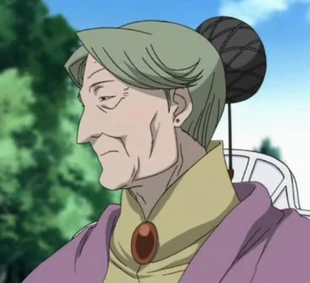
If one becomes something more than human,
one will be banished from the Church as a heretic.
Immortality means running away for eternity
and being alone for eternity.

So says Nicolas Flamel in Ulysses: Jeanne d’Arc and the Alchemist Knight. And I’mma guess he was a real hit at parties. “If one becomes something more than human…” refers to the power that human beings can receive if they consume the Philosopher’s Stone. Assuming they survive, anyway. In this alternate-history take on the story of Joan of Arc, those who ingest the stone successfully can attain a brief state of superhuman power called “Ulysses”. And while we’re only two episodes in, I have to ask why the story’s creators chose “Ulysses” as their word for someone who “becomes something more than human”.
Ulysses being a famous figure of classical epic, one might expect that his traditional story was the inspiration somehow. But that holds about as much water as a sieve. In a desert. On the moon. You see, the traditional Ulysses (or Odysseus, as he’s called in Greek) was already more than human: He had the blood of the god Hermes in his veins, and so was a demigod.
In fact, the whole point of the Odyssey, the Greek epic with him at the center, is that Ulysses is trying to recover his mortal, human identity. When the story begins, we find him hanging out with the nymph Calypso, who offers him immortality if he’ll become her lover. Through the twenty-odd books of the poem, Ulysses struggles heroically (literally!) to return to his aging, mortal wife Penelope and to assume once again his role as a human king of humans.
If it’s not the Ulysses of the Odyssey who serves as the inspiration here, then is it the Ulysses of the Illiad? No, he’s just a cunning warrior. The Ulysses of the Aeneid? No, he’s also just a cunning warrior (and inventor of the Trojan Horse). Is it the Ulysses of James Joyce’s Ulysses? Only if “becoming more than human” means “having an affair”.
There is one other major work of literature that includes Ulysses, however: Dante’s Inferno. In the 26th canto of the medieval poem, Dante meets Ulysses, who recounts the following tale:
After the events of the Odyssey, Ulysses grew tired of just being a human king of humans. He set sail for the unknown, passing through the Strait of Gibraltar which, according to legend, marked the divinely-ordained boundary that human beings were not supposed to cross. In other words, he rebels against the gods. His voyage in fact takes him all the way to Purgatory, of all places, before a divine storm sends him and his crew straight to Hell. Literally.
So returning to the anime, we do find a parallel here between the character Montmorency (the alchemist in the anime Ulysses) and the Dantean Ulysses. Both seek hidden, even forbidden, knowledge. Both are not afraid to violate divine prohibitions. But can it be said that Ulysses, like Montmorency, wants the power to become more than human?
There have been enough books written on this subject to fill a small library, and the general consensus among scholars goes something like this: Dante frequently compares and contrasts himself with Ulysses in the Divine Comedy, and Dante himself definitely wants to become more than human! In the opening lines of his Paradiso, Dante describes his poem as him sailing on a ship (suggesting that Ulysses’ voyage is a metaphor for his own poem), and then writes,
Trasumanar significar per verba
non si poria…
“To be transhumanized cannot be described in words,” says Dante. Well, I don’t know about you, but “becoming more than human” sounds like a pretty decent description of being transhumanized to me! Without repeating the volumes that have been written on the subject, it’s generally thought that Dante’s Ulysses serves as an example of someone trying to get transhumanized the wrong way, while Dante’s own journey exemplifies the right way.
So it’s entirely plausible that it’s Dante’s Ulysses, as an exemplar of one who seeks to become more than human, who served as the inspiration for the title of the anime.

… Which raises the question: Why not just call the power “Dante”? My guess is it’s because there’s already a famous anime about an alchemist who encounters a major figure named “Dante”. (And suffice it to say, this Dante also wants to become more than human!) Or—and this will only be revealed as the show goes on—perhaps the Ulysses anime wants to present Montmorency’s transhumanizing as the wrong kind and contrast it with a right kind; but that seems less likely to me.
Either way, going beyond the human is taking “Plus Ultra” to a whole new level!!
![]()
Support Curiously Dead Cat by:
- Reading
- Commenting
- Following
- Checking out my recommendations
- Pitch a collab or guest post!
